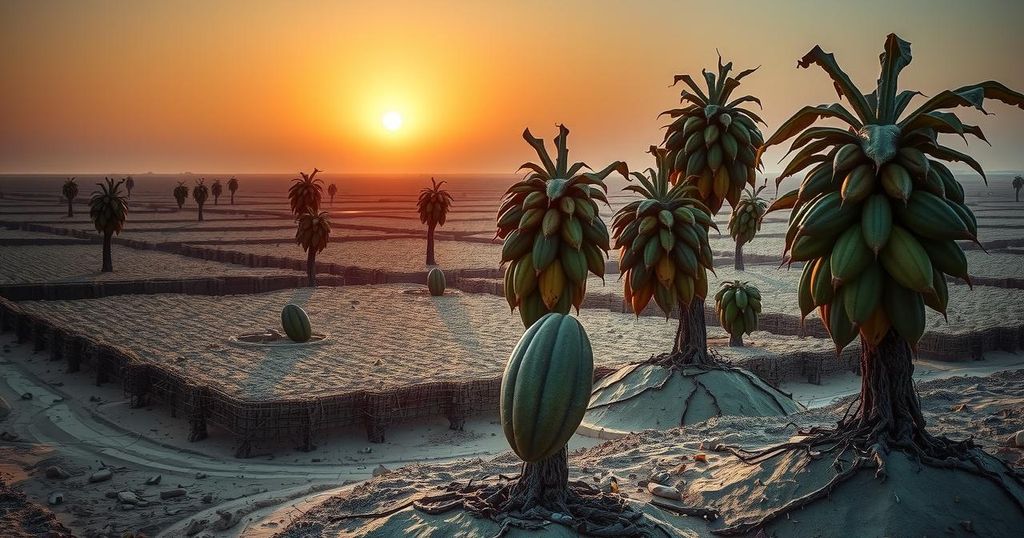Climate Change Impact on Cacao: A Threat to Chocolate Production

Climate change is causing extreme temperatures in West Africa, severely affecting cacao production and driving up chocolate prices. Key producers, Ivory Coast and Ghana, are struggling with increased heat and abnormal weather patterns, leading to diminished crop quality and yield. Experts warn of an existential threat to cacao due to climate change.
Recent research indicates that climate change is severely impacting cacao production in West Africa, a key region for chocolate supply. Rising temperatures have reached record levels, contributing to reduced harvests and increasing global chocolate prices. Farmers are grappling with heat, disease, and erratic rainfall, affecting crop yields significantly.
Ivory Coast and Ghana, the world’s largest cacao producers, are experiencing alarming shifts as rising temperatures extend an unusually hot growing season by an additional three weeks. The previous year was particularly harsh, with temperatures surpassing 32 degrees Celsius for 42 days, which has led to substantial declines in both the quantity and quality of cacao harvested.
Experts are raising concerns about the long-term viability of cacao crops, seeing climate change as an “existential threat” to the industry. The adverse conditions from excessive heat and increased aridity are prompting a decline in global cacao production, thereby driving chocolate prices to new heights. The unfolding agricultural crisis highlights the urgent need for sustainable practices to adapt to these climatic challenges.
In conclusion, climate change poses a severe threat to cacao production in West Africa, impacting farmers and driving chocolate prices upward. The notable increase in temperatures and the related challenges, such as heat stress and diseases, necessitate immediate interventions to safeguard this critical agricultural commodity for both producers and consumers.
Original Source: www.ndtv.com






